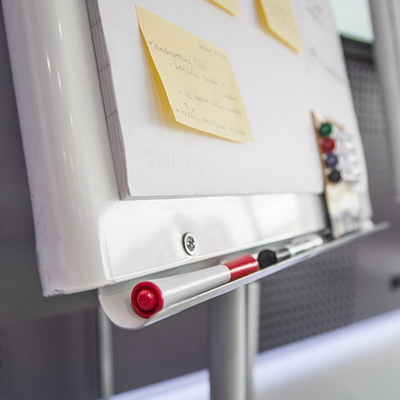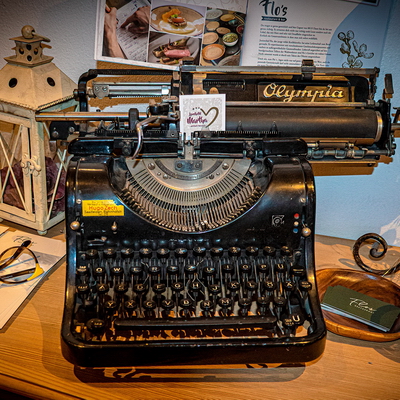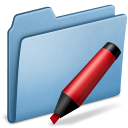
|
 Writer Officina Blog
Writer Officina Blog 
|
  Manuale di pubblicazione Amazon KDP. Sempre più autori
emergenti decidono di pubblicarse il proprio libro in Self su Amazon KDP,
ma spesso vengono intimoriti dalle possibili complicazioni tecniche. Questo
articolo offre una spiegazione semplice e dettagliata delle procedure da
seguire e permette il download di alcun file di esempio, sia per il testo
già formattato che per la copertina.
Manuale di pubblicazione Amazon KDP. Sempre più autori
emergenti decidono di pubblicarse il proprio libro in Self su Amazon KDP,
ma spesso vengono intimoriti dalle possibili complicazioni tecniche. Questo
articolo offre una spiegazione semplice e dettagliata delle procedure da
seguire e permette il download di alcun file di esempio, sia per il testo
già formattato che per la copertina. |
  Self Publishing. In passato è stato il sogno nascosto
di ogni autore che, allo stesso tempo, lo considerava un ripiego. Se da
un lato poteva essere finalmente la soluzione ai propri sogni artistici,
dall'altro aveva il retrogusto di un accomodamento fatto in casa, un piacere
derivante da una sorta di onanismo disperato, atto a certificare la proprie
capacità senza la necessità di un partner, identificato nella
figura di un Editore.
Self Publishing. In passato è stato il sogno nascosto
di ogni autore che, allo stesso tempo, lo considerava un ripiego. Se da
un lato poteva essere finalmente la soluzione ai propri sogni artistici,
dall'altro aveva il retrogusto di un accomodamento fatto in casa, un piacere
derivante da una sorta di onanismo disperato, atto a certificare la proprie
capacità senza la necessità di un partner, identificato nella
figura di un Editore. |
  Scrittori si nasce. Siamo operai della parola, oratori,
arringatori di folle, tribuni dalla parlantina sciolta, con impresso nel
DNA il dono della chiacchiera e la capacità di assumere le vesti
di ignoti raccontastorie, sbucati misteriosamente dalla foresta. Siamo figli
della dialettica, fratelli dell'ignoto, noi siamo gli agricoltori delle
favole antiche e seminiamo di sogni l'altopiano della fantasia.
Scrittori si nasce. Siamo operai della parola, oratori,
arringatori di folle, tribuni dalla parlantina sciolta, con impresso nel
DNA il dono della chiacchiera e la capacità di assumere le vesti
di ignoti raccontastorie, sbucati misteriosamente dalla foresta. Siamo figli
della dialettica, fratelli dell'ignoto, noi siamo gli agricoltori delle
favole antiche e seminiamo di sogni l'altopiano della fantasia. |
|
|
|
|
|
|
Conc. Letterario
|
|
|
|
Magazine
|
|
|
|
Blog Autori
|
|
|
|
Biblioteca New
|
|
|
|
Biblioteca Gen.
|
|
|
|
Biblioteca Top
|
|
|
|
Autori
|
|
|
|
Recensioni
|
|
|
|
Inser. Estratti
|
|
|
|
@ contatti
|
|
|
Policy Privacy
|
|
 Diary from the Sahara
Diary from the Sahara 
|

 Marrakech Menara Airport - Morocco - May 16th
Marrakech Menara Airport - Morocco - May 16th
When you don't know where to go, you simply have to go. And you do not need to search because there is for sure an enchanted place, hidden in your soul, that will call you. My breath of freedom is called Laayoune, also known by the name of El Ayun, the ancient capital of Western Sahara.
I chose to stay on the left side of the plane in order to observe, scrutinize Africa from above. Below me, the sea seems to never end. Instead, the land, distant on the horizon, hides in the clouds that feel like impalpable flakes in the merciless blue of the sky. I adore to observe the images of life from above... for instance when I walk the rough paths that climb the unchanged slopes of the mountains to dominate the world from a privileged position.
I close my eyes and let my thoughts carry me away. When I open them again, I see the snowy peaks of the imposing Atlas Mountains and among them the Jbel Toubkal, 4,265 meters high.
I wonder what I am doing here, or rather, what the hell I am going to do over there, over the mountains, and I cannot answer myself. I do not need a reason to go in the desert. You go there to get lost and in the end you find yourself. And the striking fact is that I have no fear. A bit like when you are going to war and you take it for granted that you won't be the one to die. To be honest, I don't have any intention of dying, but I always think about it, just to remind myself how beautiful life is. Yes... you always imagine life different from how it actually is, but basically, it is all that happens while we are busy worrying about the rest.
When the plane engines become quieter, I hold my breath. I look at the wrist's GPS of KeyMaze and I realize that the flight altitude is decreasing. A few minutes later the voice of the hostess warns to fasten the seat belts. The left wing lowers down and I immediately feel the blood moving from one temple to another. We are turning sideways... and landing.
I'm carrying the inevitable National Geographic's backpack, a fanny pack and a shoulder strap. I mentally repeat the list of what they contain, but I have the certainty I haven't forgotten anything. And how could I? I had unpacked and re-packed them once a day for two weeks, as if I had to leave for the dark face of the moon. First of all my Netbook and then the reflex, one Canon, but also a second compact digital and a high definition video camera. All of the same brand, so that I can charge the batteries with a single multipurpose charger; and then the solar panel and a heavy 7Ah battery. I will buy a satellite phone once I get there, to be sure it works. Few clothes, the essential: three pairs of trousers and a few shirts, the inevitable green military jacket, two shemag, five pairs of socks, two of shoes and seven underpants, all pressed into the pockets of the backpack among the inevitable paper tissues, the aluminum blankets and two dozen of multi-proteins Enervit bars.
Now from the airplane porthole I see the houses and palm trees that dart away as if they were swallowed by a whirlpool. Then I sense the contact of the wheels with the landing airstrip, someone applauds and I take a breath of relief: - We made it!
Now it comes the fun part because I have to distance myself from the other passengers and deliberately get lost in the airport, thus avoiding passing through the checkpoints. I do not have to get out of Menara, but at the same time I have to be discreet because otherwise my trip will just end here.
Amed is somewhere and is watching me, I just have to wait until he comes to me with his enigmatic smile and leads me to one of the many commercial hangars from which cargo planes leave heading to the south of the country. He suddenly appears, comes to meet me and hugs me: - We must hurry, - he tells me in French - after the attack at Caffè Argana the police is everywhere and they have become suspicious.
He is alone, so something has already gone wrong because we were supposed to hand our documents to his sister. The idea to travel without documents was dictated by a logic of convenience: we could have adapted our identities based on who stopped us. Anyhow, we will enter Western Sahara without a Moroccan pass, also because the request would have been too long and complicated. He signals me to walk slowly and to be discreet. And, anyways, we westerners are the only ones to always be in a hurry. He shows me a series of sand-colored sheds on the edge of the airport and he reassures me that everything is ready.
In there, he has put our load of food and the travel equipment, including two rifles Garand M1 and fifty bullets. This is the security of African airports, where with a few Dirhams it is easy to enter everything! Maybe in the passenger area and on airliners the controls are stricter, but on peripheral airstrip the movement of any type of material often goes unnoticed.
And it is on that beat-up airstrip that the aircraft is waiting for us: one of the most used aircraft for the transport of goods in the disadvantaged areas, flagship of the American Douglas, operating since 1945. It is a twin-engine propeller, name in code C-47 Skytrain, which in the version intended for the British was renamed to Dakota. Practically he is the twin of the DC-3 which was adapted for the transport of troops.
The passage for two people from Menara Airport of Marrakech to Laayoune, the arid heart of the Western Sahara, costs us 500 Dirhams, about 44 Euros. A flight of nine hundred kilometers, and we sit between the dirty boxes in the hold.
Knowing Amed's carelessness, I ask him to check our travel equipment together. He smiles at me, he takes a few steps away and reappears dragging a kind of cart with wheels that were probably stolen from a tricycle. I don't have a written list. My verification is a simple control of the everyday actions and therefore I begin looking for the milk powder for the morning breakfast and finish with the green cans of the famous K rations that will serve as dinner.
He looks at me thoughtfully, even though he knows he has correctly followed my instructions. I nod and a smile blossoms on his lips.
In the semi-dark shed there are probably forty degrees and it is certainly not the dry heat of the desert. I head towards one of the doors, but Amed calls me back with obvious concern: - We have to wait here, - he hurries to remind me - one of the pilots will come call us.
- When? - I ask him.
In response, he points a man who arrives behind my shoulders. I turn around just in time to see his face and I find myself tight in a powerful hug. He is called Nazar and he works for a local company of airplane transport. He is a former Soviet Union pilot, emigrated to Africa in 1991 after the collapse of the Communist Empire. He speaks an approximate mix of French and Spanish with a strong Russian accent but, albeit with effort, we can understand each other. He explains to me that we have to follow him quickly because he just got the flight permit and his colleague is already warming up the engines.
When we leave the shed, I feel the adrenaline rush. The roar of the two Pratt & Whitney engines 1200 HP fills the air with the strong smell of petrol. Under the wheels there are two wooden wedges and the tailgate is open. It is absurd to load the goods with the plane in motion, but Nazar explains that, from the moment of the ignition of the engines, nobody controls what is done anymore.
I keep well away from the propellers, yet the exhaust smoke enters my lungs and goes straight to my brain, giving me the same effect of a hangover. With some effort, I climb up to the hold and, fortunately, this feeling of lightness leaves me as quickly as it is came. The next few minutes go by with nothing happening, until the radio croaks something incomprehensible. It is then that Nazar takes the aircraft controls and raises his thumb. At the same time I realize that his colleague is certainly not Russian given the evident dark color of his skin. He wears an orange mechanic suit, greased and rumpled. They look like the commander Ian Solo and his co-pilot, the wookiee Chewbecca, just coming out from an episode of Star Wars.
- He's not the second pilot ... - I tell Amed, who opens his arms with desolation before wondering surprised: -Isn't one enough?
No, one is not enough, damn it, but in the southern world nothing works under precise rules. The engines increase in revs, the plane has a tremendous bump and Nazar shouts unrepeatable words to the mechanic. There we go with our first problem on the Millennium Falcon ... but this time it isn't a movie!
I have a terrible suspicion that the African man hasn't taken away the wedges in front of the wheels. Twenty minutes pass before the plane reaches the more peripheral airstrip of Marrakech, then stops again and waits for the control tower to give the green light.
I hate these moments when tension becomes palpable and I don't want to be overwhelmed by negative thoughts. I repeat myself that everything will be fine, that the damn military jeep isn't coming here for us...however, it is exactly what's happening.
Now the adrenaline is sky high, I look at Amed and my eye falls upon the two Garands placed between the cart and the multi-colored blankets. I wonder if I would ever be ready to shoot to defend my life but I don't have the time to answer myself. The two engines rev up abruptly, Nazar screams out of satisfaction and the C-47 begins to taxi.
Accustomed to airliners that take off like bullets shot to heaven, it seems to me that this overweight bolt never takes off ... and it's not only an impression. When it finally leaves the airstrip, it seems to regret having done so and it continues to fly low over the ground until it reaches a minimum height in which it can finally turn. It points towards the ocean, then it descends towards Agadir and follows the Moroccan coast heading south, taking as reference the coastal road that crosses the whole Western Sahara to Mauritania. Ah, if it could really take a leap into hyperspace! But unfortunately it can't happen and I see beneath me the dunes I will soon cross by foot.
I can finally relax and try to have at least an hour of sleep, just enough time until one abrupt turn of the plane awakes me from my numbness. The pilot shouts something I can't understand, I wearily get up and, trying to hang on to the straps that hold the boxes, I look out into the cabin.
- El Ayun! -he repeats, pointing to the track.
Almost by magic, Laayoune appears to me.
The moment of landing is always full of apprehension. The aircraft already seems too low and the airstrip hasn't begun yet... I also have to tolerate Amed who invokes Allah aloud, almost as if an extra God it could increase the odds that he would run the C-47 safely to the ground. I don't know which of the two has lengthened the sandy belt of the airstrip, but finally the plane leans the wheels on the ground with a couple of jolts and it finally halts.
Amed hugs me and smiles, the mechanic offers Nazar a bottle of vodka and the propellers slow down until they stop. Before saying goodbye to the pilot, I ask him to give me his phone number. He writes it by hand on a greasy piece of paper, I thank him and we say goodbye.
The first impact with Western Sahara is an unbearable heat. We unload our cart, we warmly greet the two mad men who have brought us here and we leave the airport in a hurry through the passage they have shown us. Nobody asks un anything and our journey can now begin.
Hassan I Laayoune - Western Sahara Airport
What is today called Western Sahara, was a Spanish colony until 1976, when Spain was definitively driven out with the Green March. But after obtaining independence, in fact only the governor changed and Morocco gradually annexed much of the Sahara territory. At the same time, the Arab Democratic Republic of the Sahrawi had proclaimed independence, starting diplomatic relationships with different states. Though it was recognized from the African Union, the United Nations included it in the list of non-independent territories and didn't legalize the annexation of Western Sahara to Morocco. The guerrilla officially ended with the ceasefire of 1991, yet a subdued anger is running down the streets, waiting to suddenly explode again.
What seems to me as a simple sea of windswept dunes, is in fact hiding one of the largest phosphate deposits, of which the subsoil is very rich.
The main open-air mine is in Bou Craa and it is connected to the sea with a conveyor belt of over a hundred kilometers long. It is the largest in the world on an area of 250 square kilometers and, of course, like any other economic activity here, it is controlled by the Moroccan authorities.
But I'm not here for politics, or to embrace others' causes or recognize any flag. I'm here to feed myself with sand and desert, I'm here to breathe this warm wind that burns the nostrils ... and I immediately offer my light skin to the scorching sun that falls from the zenith. I'm walking on my shadow, which doesn't even have the courage to overcome the tip of my shoes.
I take from my backpack the first of the maps that I have printed from Google Earth and I try to understand where we are from the buildings around us. Laayoune is a messy and quite dangerous city, therefore we have to get out of there before the sunset. We divide the tasks, among us: Amed has to negotiate to buy four dromedaries, which here everyone calls camels, and I have the arduous task of finding a working satellite phone.
The first attempt I do is in the phone shop just outside the airport. I am offered an old Thuraya with the possibility to use my sim card, albeit with excessive costs. What really interests me is that it communicate data to my laptop because I prefer to use MSN Messenger for all types of call. The guy seems experienced, so I take out my netbook and he stares at me, wondering where I will insert the CD with the communication drivers.
I pass him the memory stick with 4 gigabytes of memory and I ask him to copy them for me. It takes half an hour before we can install the program but, as we connect the cable from the USB port to the satellite phone, everything seems to work perfectly.
He asks me for an amount of money corresponding to 350 Euros without the need for any document. I shake my head as a ‘no' and I am about to go out the shop. He chases me at the door and we begin to reason. In Africa, you always find an agreement. In the end, after a long discussion, I try to make an Internet connection, I give him around 170 Euros, and go looking for Amed in the market where I left him.
I find him bargaining with three dromedaries' sellers. The first impression is that they don't speak the same language because they continuously repeat the same words with different accents. When he sees me, he explains that they are Sahrawi and they do not see favorably the Moroccans.
The dromedaries' fences are simple barbed wires, pulled between some wooden stakes. The animals all seem healthy and well kept. There are many young ones. We turn around the square a little and my attention is attracted by a big male who seems to be smiling at me. I ask Amed what he thinks and he immediately advises against it, without adding a particular reason. I approach the seller and ask him in French how much he wants for that big beast. He answers in a language that is unknown to me but, strangely, Amed understands him. After a long bargaining, the price of three females plus this male is set on price equivalent to 179 Euros. I offer him 130, take or leave. As I expected, the deal is made.
When I approach the dromedary for the first time, they advise me to use a stick. Of course I do it myself and, as soon as I reach out, the beast tries to bite me. - This is a bad dromedary! - Amed tells me, passing me a rod – I told you not to buy it.
- If it works like with dogs, - I answer – then it bites to defend itself ... it bites because it is afraid.
- Then you hit it on the head and you will show who is on charge. – he insists.
I opt for a second option. I take one Enervit bar from my bag, I break it in half and I offer him one piece. As I wait for him to approach, I baptize my small herd. I call the three females Ari, Isa and Ely ... as for the male, I call him Big. They are the names of the friends who will follow my journey from the Colonial Cafe in Milan.
The big dromedary slowly approaches moving with caution. Several times he retraces his steps without ever taking his eyes off me, and he finally comes to pick the bar from the palm of my hand, taking it with a surprising delicacy. I put the rope around his neck and Amed ties the other animals, one after the other, then takes the cart with the goods and he makes a sign that we are ready to set off.
A few hundred meters and we stop at a market to buy some water. They sell it in plastic bowls of 5 liters. I do a quick weight count and decide for a total of 120 liters. I divide the 24 bowls among two dromedaries, 6 per side, well secured with one large rope passing on the upper ring. Then I check that they are stable. We protect everything with typical Saharan blankets, on which we also fix the rest of the goods. The idea is to interchange the animals for the transportation of the material with the ones we will use to ride. But this is not the time for other experiments, we put the caravan on the road and we go across the city with its typical ocher and red houses.
The first impact with the sun of the Western Sahara is a torture, even if periodically, I leave the dromedaries to Amed and I seek shelter in some shady corner.
Now I feel like one of those explorers who return to their homeland after conquering the world, yet ... I haven't left yet. Around me thousands of dark eyes stare at me, but they never look straight at me. Instead I stare at them one by one without any fear, pervaded by the crazy certainty that my Wakaam gaze will be enough to keep them away.
Africa is also this, after centuries of colonization, the white man who boldly enters the city is still a reason for fear. We take the N1 road that goes up from Mauritania and passes right through the center of Laayoune until it crosses the Dait um Saad, a discontinuous, patchy lake that marks the northern suburbs of the city.
At the end of the bridge we find a warning sign that indicates the distance to the various destinations. Our final destination, TanTan, is reported at 305 Km, but we will not reach it from this road. We overpass the large orange door with the Arabic arch that signals the entrance to the city from the north and continue for another 3 kilometers.
When I stop to check the GPS, Amed signals me to continue. I explain to him that Al Haggounia is at about 85 km, direction 71 degrees and, as expected, we will cut right through the desert. My first reference is Camp 0, where we will spend the first night, it is at about two hours walk from where we are.
He looks at me puzzled, but he restrains from any comment.
It is almost four in the afternoon, the sun begins to fall behind us and the dromedaries seem to have a great desire to walk... almost as much as mine. Here the desert is just an ugly and stony expanse, one of those places where you never want to be. I walk and think... I think of everything in order to not think about the fatigue which I am starting to feel after a long day begun before dawn. The adrenaline drops and the thousands kilometers by flight start to have a deep impact on me.
At four o'clock this morning I was at the Malpensa airport and now I'm in the heart of Africa. Amed repeats several times that we should stop, but rules are rules and our arrival point is one square meter of dust in the middle of nowhere. Translated into GPS figures it is longitude -13.078253° and latitude 27.215279°.
When we reach it, Amed looks at me in horror: -Here? - he asks - Why here?
- Because it's a point I decided before leaving, - I reply, visibly satisfied, showing him one map he does not even care to look at - because in 53 km there is Camp 1 and in 72 km in the direction of 70 degrees there is Al Haggounia.
- What's at camp 1? - he insists.
- Nothing... - I smile – nothing, exactly like here!
He does not understand and I realize that it is useless to attempt to explain to him that I divided the journey into five days and a half, and the first half has just passed. He cannot understand because he is here for money and I am here for pure passion. Nor can he understand the reasons of this trip which honestly are not clear to me either, but, whatever they are, they make me feel well. I've been here a thousand times in a dream: I know this place because I travelled here with my imagination and because I had scrutinized it from above with the technology. Now it doesn't even seem true to me.
I light the fire using a solid rod as fuel, purchased on eBay in Harlow, in the United Kingdom. I open one of the American boxes and put it on the fire to warm up.
The desert, around me, becomes orange because of the sunset and the wind stops blowing. I approach the dromedaries and I check Amed's work. I walk among them and I speak to them, as if they were some friends from the Colonial Cafe, and anyways I gave them the same names. Isa and Ely stay close to each other, occasionally rubbing their heads together. They play under Ari's curious eyes: he does not lose sight of them.
Big, instead, stands on the side, I crouch near him and he withdraws... he moves his neck to stop me from touching him.
-If the dromedaries run away tonight, - shouts Amed - don't blame me.
He is resentful because I didn't allow him to tie their legs up, just as I don't want to apply a the ring on their nostrils. For him they are just animals, but for me they are an integral part of my African dream.
When I'm about to have dinner, having the heated box of decennial beef, Big looks at me and seems to be smiling. I go back to him and I give him a mock on the head, then I sit by the fire and I begin to eat, aware that I am finally here in the legendary Campo 0. |
|
Biblioteca

|
Acquista

|
Preferenze

|
Recensione
|
Contatto

|
|
|
|
|